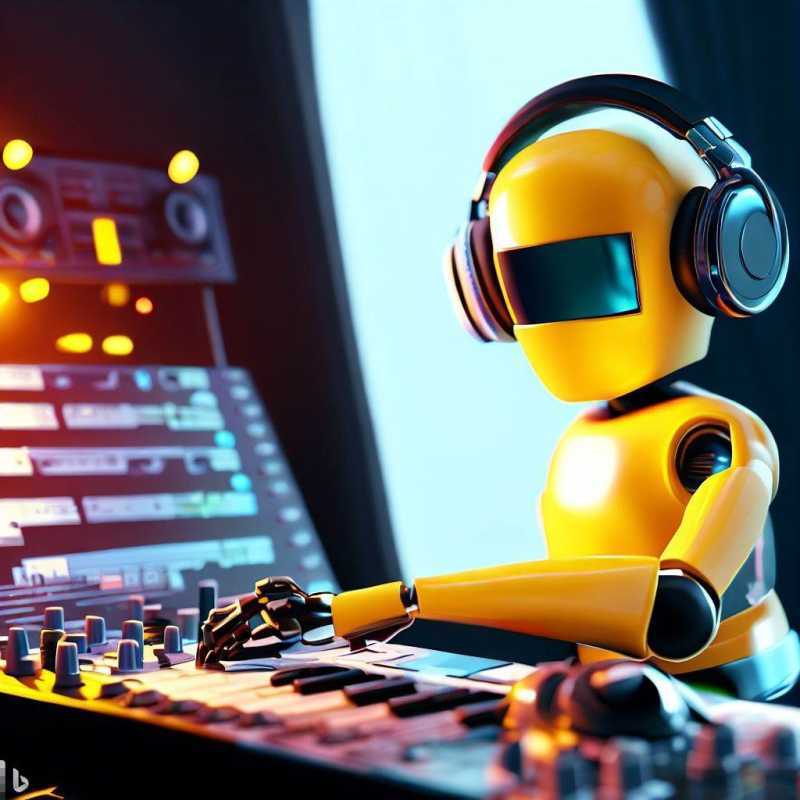The Sound Of AI: How Machine Learning Is Shaping Musical Creativity

Discover how machine learning is revolutionizing the music industry and changing the way we create and experience music.
Music has always been an integral part of human life. Humans from all cultures and walks of life have developed music as a personal or cultural expression. Technologies that record and store music have made it even more accessible and part of our daily lives. But technology doesn’t seem to stop there. The advancement of AI in music production is a continuous process that has seen exponential growth in recent years. Composition, mixing, and mastering are just a few of the steps in the music-making process that may now be automated using AI algorithms. Furthermore, AI-based technologies have opened new avenues for artists to create content, collaborate, and distribute music.
Earlier applications of AI in music
The use of AI in music composition dates back more than 60 years. The first musical piece composed by a computer was released in 1957. It was a string quartet work created by the ILLIAC I computer and is known as the Illiac Suite. Early applications of AI in music production focused on “algorithmic composition”, in which computers wrote and arranged musical notes which instrumentalists then performed.
In the 1990s, AI emerged as a songwriting tool. David Bowie, a British singer-songwriter, created the lyrics for his songs using a program called Verbasizer. While Bowie didn’t entirely rely on AI for songwriting, his openness to collaborating with technology put him ahead of his time. Since then, AI has advanced in the music industry and is now included in all stages of music production.
Current applications of AI in music
Nowadays, AI has a multifaceted use in music production. Its role could range from performing limited tasks to generating entire albums. AI has also been incorporated into Digital Audio Workstations (DAW) applications like Abelton and FL Studio to aid in the music production process. These programs employ AI to build chords, tune audio, detect a song's key, and many other tasks. Furthermore, companies like Avia and Amper Music now use AI to compose scores for movies, games, and other content. Google’s Magenta, OpenAI’s JukeBox, and iZotope are among the notable AI products that assist in music production. AI’s role in songwriting is also notable. Several programs can now generate prompts, provide inspiration, or even write lyrics for you. Programs such as Amadeus Code have helped many artists who are facing a creative block.
Post-processing is one of the most time-consuming steps in the creation of music. Once your music has been composed and recorded, it needs to be mixed and mastered in order to sound consistent across all listening platforms. The process is often lengthy and requires input from producers, engineers, and artists themselves. Thanks to AI, artists don’t have to do that anymore. AI has now eased the mixing and mastering of music to the point that it can be done in just a few minutes. The two most commonly used programs are Neutron and Ozone. Such applications have helped many new artists who don’t have access to large studios and expensive recording equipment.
Controversies
The main controversy regarding AI in music is copyright, especially for music that has been produced with minimal to no human input. Copyright laws in the US, for instance, do not grant protection for such music. Much like in digital art, we are yet to see a formal integration of AI into the industry. For now, the industry only allows artists to collaborate with AI rather than AI doing everything.
Regardless, the development of artificial intelligence has had a significant impact on how we create music today. It has been a tremendous tool for innovation and experimentation, working as a potent asset both technically and creatively. However, it is wise to keep an eye out for current ethical considerations given its growing role within music production environments. The progress of AI should be done responsibly, with its goal being to assist artists instead of supplanting them.
